#hi and welcome to the tags also known as the exclusive scoop
Text
anyways another mostly personal post but I've been thinking about that one venty-ish post I made about the hexsquad the other day and I think the fact that I wrote it at 3 AM shows lmao.
When it comes down to it, The Owl House is just a fun kids' show. We can't expect it to be perfect, and I can't expect it to go the way I want it to and center on my favorite characters.
I'll always be disappointed that Gus and Willow don't play a bigger role in the overarching story, but I think right now I'm just sad that I don't have the energy to appreciate the story / my favorite characters as much as I used to.
Here's to you guys who still have the energy to create and love these characters! May I one day join you again and leave effusive comments on your works!
On a (tangentially) related note, I don't think I'm really going to keep reblogging those posts about reblogs and likes and shit. They're kinda guilt trippy and don't really do anything.
Instead, I'll leave you this handy tip:
If you're enjoying something a lot and you've got the words to say so, putting them down in a comment or even just the tags can be well worth the effort of getting through your shyness or anxieties. I've had more than a few artists I thought were really cool follow me back because of that!
Elite strats 😎
#hi and welcome to the tags also known as the exclusive scoop#really I don't care any more about reblogs than likes unless it's got comments I just wanted to talk about my stuff with lots of people#and I've already got the people really#just not stuff to talk to them about lol#also disclaimer: I do think commentary on how the people TOH Does focus on are all white while the POC are sidelined is merited#that's just a different conversation from this post about my personal feelings on them lol#p.p.s. this also doesn't mean I've abandoned the MCGFAU it just means I can only muster the energy to write a scene once a week#so. slower going#I've got a coauthor though it's fine#that fic isn't dying anytime soon#de anguigeno#writer's log#kinda
14 notes
·
View notes
Text

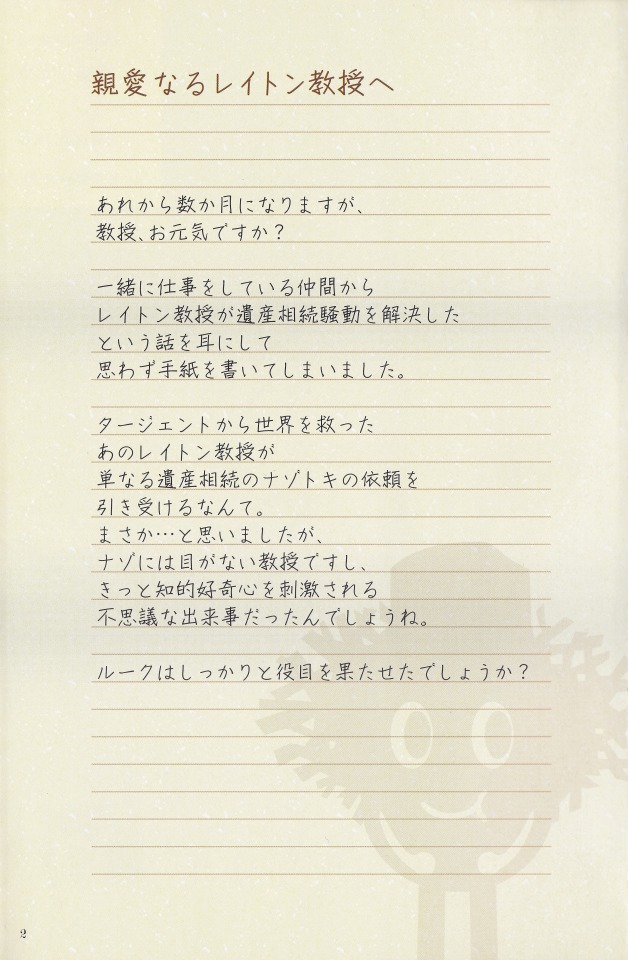
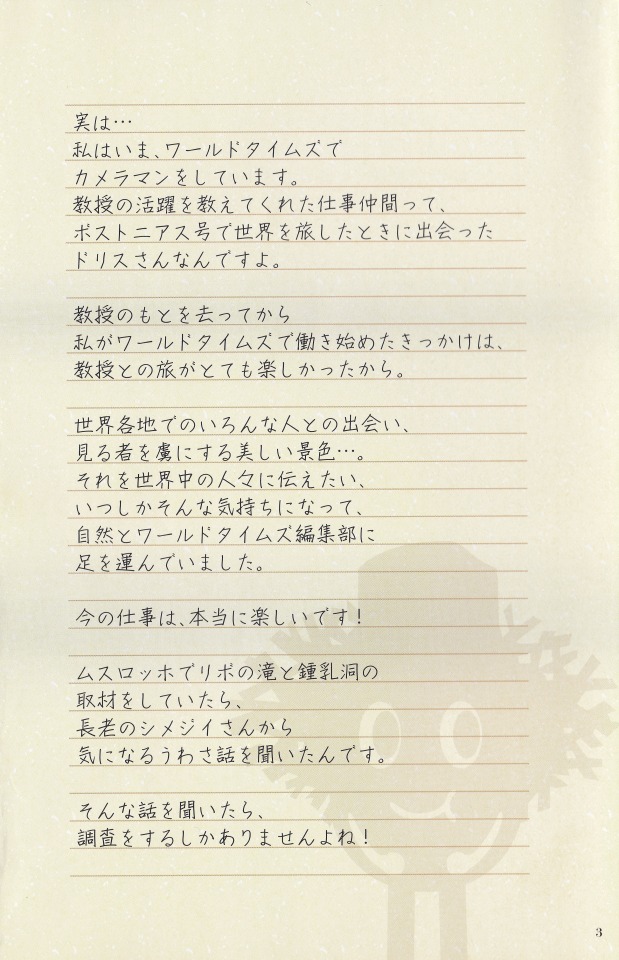
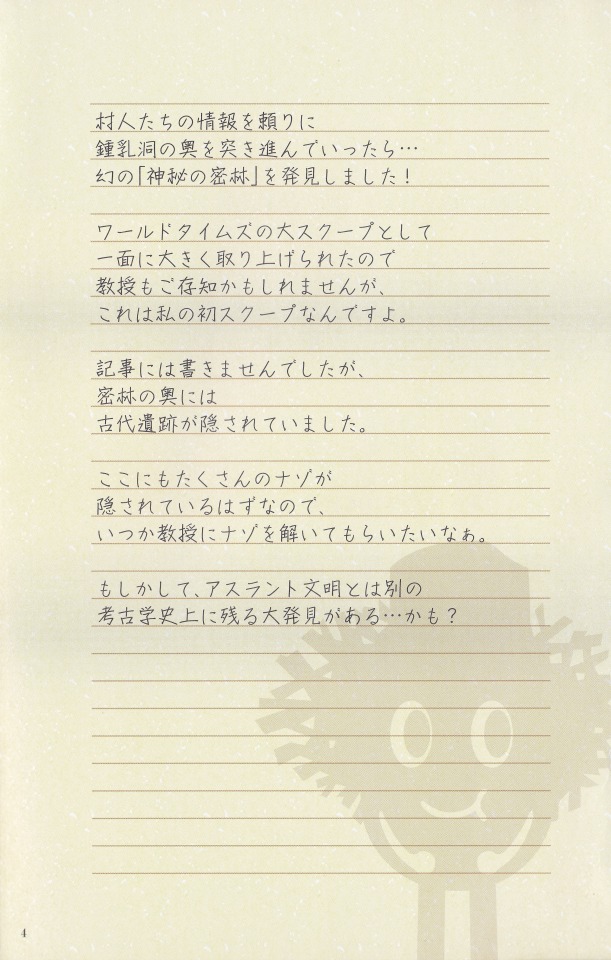
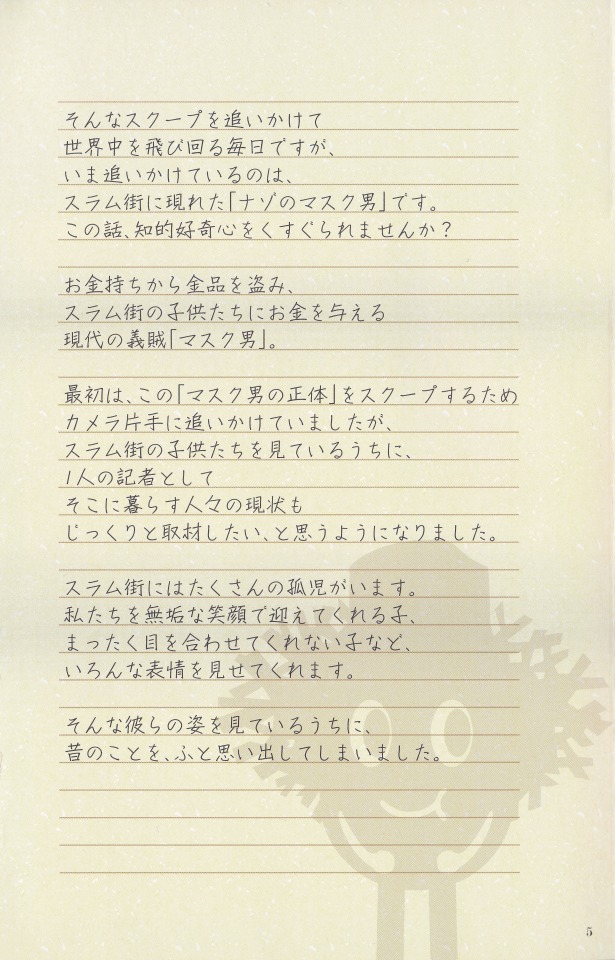
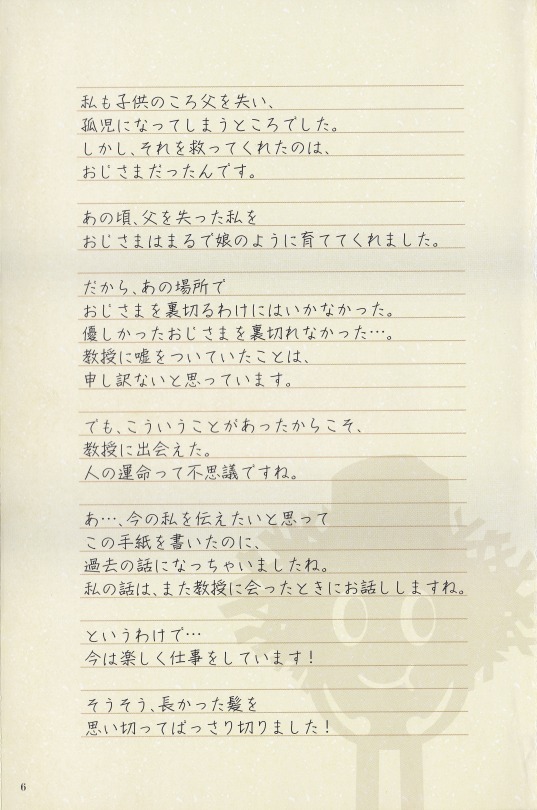
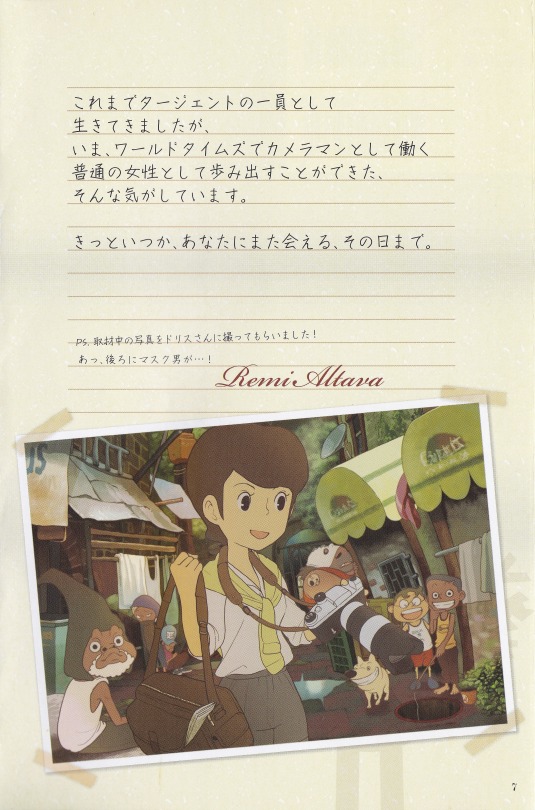
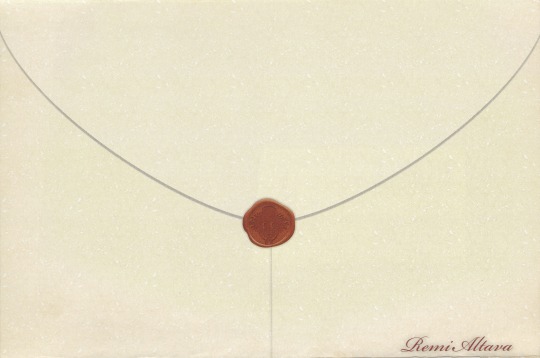
Did someone ask for more scans? No? Too bad, have more scans.
Emmy's letter to Professor Layton, post-Curious Village. The fabled letter, which can only be accessed properly if you rip open your copy of the Japan-exclusive Azran Legacy Guidebook (more or less).
Years ago, there were photos and a fan-translation floating around on tumblr. Now, I give you the new and high quality version, as well as a full transcript. You're welcome :>
It's been literally eight years since your post, but since your tags say that you wanted to be warned if a better scan were to be made, well... Here you go @puzzilitis x) I'm also tagging @the-azran-legacies, but I'm pretty sure your blog is completely dead since this translation post seems to be its latest sign of activity, and that was ten years ago.
Seriously though, just in case you get to see this -- thank you both so much for what you did all these years ago. Without your posts, I might never even have heard that this letter existed in the first place! Or, well, I likely would have heard of it by now given the fact that I've been documenting every single Layton media I can find -- but I would have lived through an entire decade of ignorance by that point.

The translation below has been done exclusively with DeepL because my free time is limited, sorry for that ^^' If you want another one in order to compare, you have the one linked above, and I will likely make another one later (much later).

みんなのエピソード21|レミからの手紙
Everybody's Episode 21: A Letter from Emmy
親愛なるレイトン教授へ
Dear Professor Layton,
あれから数か月になりますが、教授、お元気ですか?
It's been a few months since then. Professor, how are you?
一緒に仕事をしている仲間からレイトン教授が遺産相続騒動を解決したという話を耳にして思わず手紙を書いてしまいました。
When I heard from a colleague I work with that you had solved an inheritance dispute, I couldn't resist writing to you.
タージェントから世界を救ったあのレイトン教授が単なる遺産相続のナゾトキの依頼を引き受けるなんて。まさか…と思いましたが、ナゾには目がない教授ですし、きっと知的好奇心を刺激される不思議な出来事だったんでしょうね。
How could the very same Professor Layton who had saved the world from Targent, now accept a mere inheritance puzzle request? I could not believe it… But you always had a penchant for puzzles, so I am certain that it had to be a mysterious event which truly stimulated your intellectual curiosity.
ルークはしっかりと役目を果たせたでしょうか?
Has Luke fulfilled his role well?
実は…私はいま、ワールドタイムズでカメラマンをしています。教授の活躍を教えてくれた仕事仲間って、ボストニアス号で世界を旅したときに出会ったドリスさんなんですよ。
By the way... I am now a photographer for the World Times. The colleague who told me about your activities is Doris. We met her when we were travelling around the world on the Bostonius.
教授のもとを去ってから私がワールドタイムズで働き始めたきっかけは、教授との旅がとても楽しかったから。
I started working for the World Times after I quit my job as your assistant, since I enjoyed the journey with you so much.
世界各地でのいろんな人との出会い、見る者を虜にする美しい景色…。それを世界中の人々に伝えたい、いっしかそんな気持ちになって、自然とワールドタイムズ編集部に足を運んでいました。
Meeting all kinds of people in different parts of the world, finding beautiful and captivating landscapes… I wanted to tell people all over the world about these experiences, and this is how I naturally came to visit the World Times editorial office.
今の仕事は、本当に楽しいです!
I really enjoy my current job!
ムスロッホでリボの滝と鍾乳洞の取材をしていたら、長老のシメジイさんから気になるうわさ話を聞いたんです。
While I was reporting for the Ribo Waterfalls and the limestone caves of Musloch, I heard interesting rumours from the elder, Mr Simejii.
そんな話を聞いたら、調査をするしかありませんよね!
After hearing such a story, I simply could not resist investigating!
村人たちの情報を頼りに鍾乳洞の奥を突き進んでいったら…幻の「神秘の密林」を発見しました!
After going deeper into the limestone caves, by relying on the information the villagers gave me… The fabled "Mystical Jungle" has been discovered!
ワールドタイムズの大スクープとして一面に大きく取り上げられたので教授もご存知かもしれませんが、これは私の初スクープなんですよ。
You may have already known of it since it was featured as huge news on the front page of the World Times, but this was my first scoop.
記事には書きませんでしたが、密林の奥には古代遺跡が隠されていました。
We did not mention it in the article, but there were ancient ruins hidden deep in the jungle.
ここにもたくさんのナゾが隠されているはずなので、いつか教授にナゾを解いてもらいたいなぁ。
There must be a lot of puzzles hidden there. I hope you will solve them one day.
もしかして、アスラント文明とは別の考古学史上に残る大発見がある…かも?
Maybe there is another major discovery in the history of archaeology that is unrelated to the Azran civilisation… maybe?
そんなスクープを追いかけて世界中を飛び回る毎日ですが、いま追いかけているのは、スラム街に現れた「ナゾのマスク男」です。この話、知的好奇心をくすぐられませんか?
I spend my days travelling around the world, chasing this kind of scoop. What I am chasing now is a "Puzzling Masked Man" who has appeared in the slum quarters. Doesn't this story tickle your intellectual curiosity?
お金持ちから金品を盗み、スラム街の子供たちにお金を与える現代の義賊「マスク男」。
The Masked Man is a modern-day righteous bandit who steals money and goods from the rich and gives it to the children in the slums.
最初は、この「マスク男の正体」をスクープするためカメラ片手に追いかけていましたが、スラム街の子供たちを見ているうちに、1人の記者としてそこに暮らす人々の現状もじっくりと取材したい、と思うようになりました。
At first, I followed this "Masked Man," camera in hand, in order to get a scoop on his identity. But as I watched the children in the slums, I began to think that, as a reporter, I should rather take the time to cover the current situation of the people living there.
スラム街にはたくさんの孤児がいます。私たちを無垢な笑顔で迎えてくれる子、まったく目を合わせてくれない子など、いろんな表情を見せてくれます。
There are many orphans in the slums. We see many different faces, from those who greet us with innocent smiles to those who don't make eye contact at all.
そんな彼らの姿を見ているうちに、昔のことを、ふと思い出してしまいました。
As I watched them, I suddenly remembered something from the past.
私も子供のころ父を失い、孤児になってしまうところでした。しかし、それを救ってくれたのは、おじさまだったんです。
I lost my father as a child and almost became an orphan. But Uncle Leon saved me from that.
あの頃、父を失った私をおじさまはまるで娘のように育ててくれました。
Back then, I had lost my father, and Uncle Leon brought me up as if I were his daughter.
だから、あの場所でおじさまを裏切るわけにはいかなかった。優しかったおじさまを裏切れなかった…。教授に嘘をついていたことは、申し訳ないと思っています。
So this is why I couldn't betray him in that place. I couldn't betray my kind Uncle Leon... I truly am sorry that I lied to you, Professor.
でも、こういうことがあったからこそ、教授に出会えた。人の運命って不思議ですね。
Still, it was because of these things that I met you. The destiny of people is a curious thing, isnt' it?
あ…、今の私を伝えたいと思ってこの手紙を書いたのに、過去の話になっちゃいましたね。私の話は、また教授に会ったときにお話ししますね。
Ah... I wrote this letter in order to tell you how I am now, but all this is about the past. I will tell you my story when we meet again.
というわけで…今は楽しく仕事をしています!
So, all that to say... I really am enjoying my work now!
そうそう、長かった髪を思い切ってばっさり切りました!
Yes, I also cut off my long hair in a very drastic way!
これまでタージェントの一員として生きてきましたが、いま、ワールドタイムズでカメラマンとして働く普通の女性として歩み出すことができた、そんな気がしています。
I have lived my entire life as a member of Targent. But now, I feel that I have been able to step forward as an ordinary woman, who is now working as a photographer for the World Times.
きっといつか、あなたにまた会える、その日まで。
I am sure that one day, we will meet again. Until that day.
PS.取材中の写真をドリスさんに撮ってもらいました!あっ、後ろにマスク男が…!
P.S. Doris took photos during the interview! Ah, the Masked Man is in the background...!
Emmy Altava

Important translation note: Emmy calls Bronev "oji-sama," all in hiragana, which makes it unclear whether she is related to him by blood or not (おじ means "uncle," but can also just mean "man who is older than the speaker" (at least from what I know)).
The Eternal Diva novel introduces Emmy as "a beautiful woman of Asian lineage" (and yes, I know, Asia is huge with a lot of different lineages, and I don't know either which corner of Asia is being talked about here), so make of that info what you like. In order to leave it as ambiguous as I could, I replaced all instances of "oji-sama" with "Uncle Leon."
There might be a few other translation changes I made, but I think this was the most important one to take note of.

By the way, I actually scanned the whole guidebook, and I will share it when I can (though don't hold your breath, as you probably know I am currently juggling between way too many projects). The scans aren't ready to be shared yet because they were basically done with me not really caring whether the pages would be perfectly straight, upside down, etc, and as such they need some editing.
(I checked and the resolution of the scans is high enough to make it so that editing doesn't hurt the quality in the slightest. I swear that when the scans are finished editing, you won't even realise it and they'll look just as good as what you're seeing above with Emmy's letter).
The editing also includes linking the pages together for aesthetics purposes. Some pages have artworks that spread over both pages, so I'm doing my best to make it look seamless! Here, have an example for the first double page in the book that really does it:
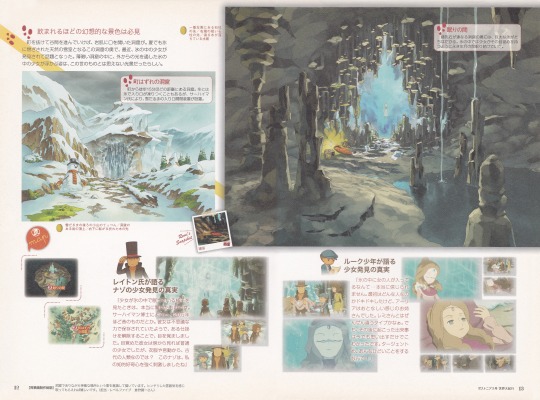
As you can guess, editing each of the 128 pages in order to get this result is time-consuming, and translating that is going to be a doozy. But let's just appreciate how awesome it will be once it's done, eh? :D
Anyway, next up on the blog is going to be the Eternal Diva novel translation. I'm still working on getting some buffer done, but hopefully the first "chapter" will get out soon! I'd like to post on Saturdays. Let's cross our fingers for tomorrow. Or next week, if today's translation is enough to satiate you all for now!
#professor layton#emmy altava#azran legacy spoilers#azran legacy#professor layton and the azran legacy#professor layton transcript#azran legacy guidebook#emmy's letter#layton preservation
230 notes
·
View notes
Text
Hong Kong stars steal show (1999)
by special correspondent Monty DiPietro
* excerpts *
Chinese box-office hit elevates Hong Kong’s cultural image
Perhaps, it should not have been a surprise at all. For years, Japanese have shown a keen interest in Asian languages as, in many ways, the image Japanese had of the rest of Asia continued its ever-quickening evolution - from boring to exotic and from backward to chic. Japan had begun to really look at its neighbours and liked what it saw. If enlightenment has an adversary it is the stereotype. For a long time, Hong Kong was regarded as little more than a cheap place to buy nice things.
Culturally, Hong Kong was widely considered a producer of low-budget kung fu films. But such impressions are now like old story lines, rejected and forgotten. It is difficult to determine exactly when or why the old stereotype died out.
The movie, Chungking Express, certainly helped elevate Hong Kong to the new cultural level of respect that it now enjoys in Japan. With its 1996 release under the Japanese title, Koi Suru Wakusei, or World in Love, the Wong Kar Wai film put a new face on Hong Kong pop culture. These days the film’s singer-actress Faye Wong is on the Japanese hit parade and plays sold-out concerts at the prestigious Budokan.
Tokyo film distribution company Prenom H is so confident of Wong Kar Wai’s appeal in the Japanese market that it pre-bought his most recent release, Happy Together. Retitled Buenos Aires in Japan, this gay love story set in Argentina was a massive silver-screen and video hit.
Meanwhile, the enthusiasm has enveloped other Hong Kong cultural exports. Fruit Chan’s Made in Hong Kong is one of this year’s most anticipated film releases.
In May, Japan’s biggest listings magazine, Pia, ran a seven-page spread that featured photos and biographies of the likes of Leslie Cheung, Tony Leung, Jordan Chan and 11 other new-generation Asian superstars. As far as the youth-driven Japanese consumer market is concerned, Hong Kong has definitely been discovered, and it is very cool. Japan is a country where trends catch on fast, and right now at least, it appears that anything Hong Kong creates a stir. The only losers in the game are those players who have not kept up with the changes in consumer preferences.
“Kung fu movies are basically dead in Japan, ” says film critic Sozo Teruoka. “Nowadays, kung fu movie fans make up a very small section of the market. Instead of patronising a cinema, they prefer to watch a kung fu video.”
Local characters on silver screen attract movie-goers
Even as interest in serious Hong Kong cinema is growing in the Japanese market, there remain some actors so popular as to be exempt from trends. The premier example is Hong Kong’s best-known cultural export - martial arts master, stuntman extraordinaire, and just-plain-loveable Jackie Chan. All of Jackie Chan’s releases are well received in Japan. There is a full-colour magazine to keep more than 3,000 dedicated Japanese members of his international fan club informed of the superstar’s activities. Fans are already awaiting Chan’s new film, Gorgeous, with great anticipation. One reason is that Tony Leung, the handsome star of Happy Together is appearing together with Chan. Although Chan is far and away the bigger draw, there will be more than a few young people buying tickets to see Leung, who is incredibly popular with Japanese audiences. His inclusion in the cast of Gorgeous ensures that the film will have the widest possible appeal in Japan.
A lesson learned from African-American actor Chris Tucker’s welcome appearance in Chan’s Rush Hour, which grossed more than US$100 million at the box office, is that a little local colour can go a long way towards attracting audiences to a new movie. Japanese actresses Takako Tokiwa and Hikari Ishida are co-starring in new Hong Kong films, and their roles will certainly increase interest among Japanese movie-goers.
Another Hong Kong artiste whose popularity in Japan is skyrocketing is Faye Wong. Like Leung, Wong also got much of her initial Japanese exposure from the film Chungking Express. Toshiba EMI reports sales of more than 100,000 units for the Beijing-born singer’s new album, Chang You, which features the hit, Eyes on Me.“ As far as Tokyo radio station J-Wave can recall, Wong is the only Canto-pop singer to have made it onto its playlist. And like her contemporaries in Hong Kong cinema, she owes much of her popularity to a mature, sophisticated image. "I was attending the launch of a record company’s new album a while back, and after this J-Pop girl did her thing, Faye Wong was brought into the room,” recalls Billboard magazine’s Tokyo bureau chief Steve McClure. “She didn’t smile insipidly like all the other female idol-types do. She had real charisma. And that is what makes Faye Wong different and interesting.” Not to mention a great voice and a beautiful face.
Wong got a big break early this year when she was chosen to sing the theme song for Final Fantasy VIII, the latest release in a series that is one of Japan’s most popular role-playing video games. Naturally, the game was hyped on Japanese television, and Faye Wong became a familiar face. A promotional tie-in that places an artiste’s material in a TV commercial results in nation-wide exposure. This is one of the best ways to establish a musical act in Japan.
Foreign chains import CDs to cater to urban customers The Eyes on Me single also benefited from cross-marketing - it was sold in computer game stores as well as record shops. EMI Hong Kong should be doing rather nicely selling copies of Chang You in Japan, but it is not. The reason?
Eyes on Me appears on the made-in-Japan version of the album but not on the Hong Kong import.
The Japanese CD market is uniquely Japanese. There is a funny little thing called the Retail Price Maintenance System that covers sound recordings, books, and newspapers. It enjoys a special exemption from the government’s anti-monopoly act, and ensures that a Japanese-made CD priced at 3,059 (HK$190) in Hokkaido will also sell for the same price in Tokyo and everywhere else in the country.
However, when a Japanese record label licenses a product from an overseas company, it cannot buy exclusive Japanese distribution rights and block all imports because that would violate international trade agreements. So, most Japanese record companies have established divisions to handle parallel
importing. Imported CDs are not affected by the retail price-fixing system; they can be sold for at least 30% less than the price tag of a Japanese release. One might guess that the moment imported CDs hit the stores, customers would scoop them up and leave the pricey Japanese versions sitting in the racks. Wrong!
“Japanese like to have things explained to them,” says Toshiba EMI’s Hiroto Hizume, “but imported CDs do not include Japanese-language liner notes or translations of the lyrics.” Another reason Japanese pay a premium for locally-manufactured CDs is that most of Japan’s 7,000 CD shops do not bother to give their customers any choice - they simply do not stock imported versions. In recent years, foreign chains such as Tower Records and Virgin Megastore have broken the protectionist compact by offering imports in major urban centres.
Songs in English appeal to large Japanese following
The Japanese Retail Price Maintenance System is currently being phased out, and should be gone, officially at least, by 2002. But the fact that a domestic CD manufacturing industry survived for so long even when the prices of imports were lower underscores the difficulties foreign companies often have in penetrating the Japanese market. Kelly Chen and Shirley Kwan do not benefit from commercial tie-ins that put their music all over Japanese television and radio. Instead, their CDs languish in the “World” music sections of those stores that do carry imports. And despite the steadily increasing interest in Asian pop culture, the general international section of a CD shop is still the first stop for Japanese music fans searching for new releases from overseas. The only CDs that are placed in the general international section are those which feature English numbers. Hong Kong pop releases share shelf space with Turkish folk songs in the “World” section.
Although she has the voice of an angel, Faye Wong had to render English-language songs before her Japanese fans would listen. Toshiba’s Hizume explains that Japanese consumers are simply more accustomed to hearing English than Cantonese. Wong is expected to record another English track for her next album, which Toshiba EMI says is due out sometime later this year.
An approach that has helped several Asian artistes make their foray into Japan is to sing in Japanese. Maybe, the time has come for another Teresa Teng, the late Taiwanese singer who charmed her way into Japanese hearts during the 1970s. Radio, cable and satellite music video programmes are another avenue for foreign singers and bands to get exposure in Japan, but there is a Catch-22. Artistes will not get on radio or TV unless they are popular, and cannot become popular until they get on radio or TV. Booking a promotional tour is an expensive option unless a record company is underwriting the act. This only happens if it has a fan base and when its product is available in stores. By comparison, bringing a film to Japan is fairly straightforward. Like almost everyone in the industry, Cine City Hong Kong’s Yuko Yoshinaga says producers should approach the film festivals first. Established in 1991, Cine City Hong Kong is located in an airy, two-storey building in Tokyo’s very fashionable Aoyama district. Along with a wide selection of movie books and posters, the company also sells video tapes, DVDs and other cinema-related products. Cine City Hong Kong is affiliated with Prenom H, the distribution company that funded the Japanese rights to Wong Kar Wai’s Happy Together. Yoshinaga says major Japanese film festivals, most of which are held annually, are invaluable vehicles for introducing new Hong Kong films and establishing contacts with the dozens of distribution companies that can put a movie in cinemas, video shops or on television.
------------------------------------------------------------------
SOURCE: THE JAPAN TIMES
0 notes
Text
Receipts of Binondo
By Ingrid Deldgado
When I was a child, I used to spend my nights helping my father in his home office just a floor below our family bedroom. Night after night, I would pull out handwritten receipts, all crumpled and stained with blood, from his old Seiko wallet and read it aloud to him. These receipts were from the meat supply business my family that has been passing on since my great grandfather started the business almost a hundred years ago. I would always goggle at these tiny scraps of paper, trying to decipher my father’s unique handwriting, as they lay carelessly scattered around the house. It didn’t take too long for me to recognize each scrawled word and memorize certain institutions that regularly appeared in the address line. The names Ha Yuan, Toho, and Sa Lido in particular remained stuck in my head because I always found them funny when reading out loud. It wasn’t until recently did I found out that Ha Yuan, Toho, and Sa Lido were not just names of old Chinese businessmen. It was, as a matter of fact, Chinese restaurants named after the old Chinese businessmen (close enough, though) along the business districts of Binondo.
As someone born and raised in Manila, the Binondo district wasn’t a stranger in my stream of consciousness. For one, I’ve known it as the birthplace of my former school’s Mother Foundress (Venerable Ignacia of the Religious of the Virgin Mary, potentially the first Filipina saint if her canonization pushes through). It was also my parents’ go-to place for furniture needs (a nice Chandelier? Soler Street has tons; new sofa? T. Pinpin has an array; plumbing needs? Sta. Elena has a gallery of toilets). And of course, I have always known it as a delivery hotspot for my father’s pork and meat supply.
When the task of finally visiting Binondo personally came at hand, my father was naturally the first person that came into my mind. It seemed that he was just as enthused at the idea as I was because he didn’t just allow me to be dropped off but also had an itinerary in mind. The day was going to be our date as we both explored the hidden charms of the old business district.
Amidst the blinding sun of high noon, my father and I rode a single motorcycle to �� in his words – give me an “immersive experience” of the bustling city. Scooped up in my father’s back, I was not protected from the stench of the esteros nor from the deafening shrieks of cars parading along Ongpin Street. Of the things I wasn’t shielded from was also the pulse of the streets’ energy as people hurriedly cross from one street to the next and sidewalk vendors call out for their next customers. Binondo’s streets boast of colors against the polluted Manila skylines, with red lanterns and Feng Shui hangings hovering overhead the idle traffic and tiny shops selling colorful treats tucked in narrow eskenitas. Though Chinese New Year had well passed, traces of the celebration still loomed in the side streets. Piles of Tikoy were still on display, as were the lucky charms and crystals that blessed the streets of Binondo.
First in my Dad’s agenda was lunch at the old Toho restaurant. Toho is the home of my favorite Spicy Squid, a dish unique to Toho as it was adapted from visiting an Indonesian local’s recipe that was shared to the family owner. It married the rich taste of ginger with 3 types of bell peppers and large squids, breaded and spiced with their “secret recipe”, and sautéed in garlic, butter, and atsuete oil. There wasn’t anything grand about the restaurant aside from the fact that it was one of the oldest restaurants still standing in Binondo. As a matter of fact, it looked more like an eatery than a proper restaurant per se with its scratched walls, worn out light fixtures, and darkened tiles. Of course, I was too polite to say these while the restaurant’s current owner, Mr. Al Wong, was with us during our visit. Surprisingly, however, he shared the same sentiments as mine. He spoke of his disappointments on the gradual decline of the restaurant that he had been with his family for more than seven decades. He lamented on the fact that every day, he only sa the same faces eating at his diner. He referred to the group behind our table as the same construction workers and laborers who routinely spend their hour-long breaks drinking cheap beer and eating warm Asado as pulutan. I listened closely as he talked to my father about renovating the space, saying that he was in talks with the architect of Mary Grace Cafes in hopes of modernizing the restaurant into something millennials could enjoy and rave about, maybe even get it trending online.
After a hearty lunch, he allowed me to take a look at the exclusive kitchen where the magic happens. The place itself wasn’t as magical since it looked even older from the inside. What – or who, rather – left me enchanted were the people working inside. I met Mang Ben, an elderly cook of the kitchen, who specializes in their trademark Pork Asado. I was fortunate to catch him in his element as he was just tossing ingredients inside a dark, large pan when I walked in. One couldn’t immediately tell that he was a chef in charge of the kitchen. He wasn’t in uniform unlike the employees visible to the customers. Instead, he was dressed in an oversized t-shirt and paint-stained shorts. He has been working in the restaurant for almost three decades, and was able to work with my now passed Lolo who used to manage the meat shop when it was still a small stall in Quiapo.
My little tour of the kitchen ended with me watching how my favorite Spicy Squid was cooked. I also brought home some takeaway for me to munch on for dinner later. I took one last look at the gloomy restaurant, knowing that it might be the last time I see it in its original architecture from seventy years ago.
I rode my father’s scooter once again, still fully fueled from our stopover in Toho. We decided to roam around Ongpin for a while and visit small stores selling all sorts of minerals and stones that promise calm and peace and prosperity. It’s funny how their staff must have been already immune to the charms’ effects, seeing how they can be unnecessarily rude to the street children who happen to wander carelessly into their store.
The distasteful trip to the old charm store was followed by a stopover at Lord Stow’s which I am most excited about. I had my first Lord Stow’s egg tarts in a quick trip to Macau and since then, I would always be on the lookout for branches here in Manila. The bakery is internationally famed for its luscious, melt-in-your-mouth egg tarts. Fortunately, their small bakery in Ongpin St. was accessible and just as tasty as the ones I found abroad. The egg tarts were just as smooth and fluffy, with sweetness and saltiness waging a war as the cream filling melted in my mouth. I ordered a box of four for takeout as I made a mental note to save it for a movie I have to watch later that night.
The final box in our itinerary list is one of Dad’s customers, hidden away at the second floor of a commercial building hosting a jewelry shop at the ground floor. With signs barely visible, I unknowingly climbed the crusty stairs of the time-worn Sa Lido restaurant. We were welcomed by the shocking sight of old Chinese men sleeping on their own tables, one with his mouth open and others asleep above a newspaper they were supposed to be reading. My dad was greeted by the gracious staff. They knew Dad by his name as he was often there to deliver rations or to collect payment. “Panganay ko” he introduced me as I was curiously smiled at by baristas manning the old drip coffee machines. We were still full from our lunch earlier which was why we just opted to take a few pictures of the restaurant. With one look, the place is easily recognizable as an authentic Chinese restaurant due to its antique furniture and Feng Shui marks around. One of the staff whose name I cannot recall (sorry, Ate!) but who Dad knew well pointed out that it is their authentic brewed coffee that garnered such a loyal following from the Chinese residents of Binondo. These patrons come back so often that they have their own mugs stored at the cafe. She showed us samples of these mugs to show how some of these even have pictures of their owners. We didn’t stay too long as not to disturbed the few but loyal clients they have at the moment and once again rode the scooter to head home.
As I settled on the back of my father’s scooter, I began recounting the day’s events, trying to relish every detail of the day’s trip. I finally saw Toho and Sa Lido in real life. They were no longer funny names in the receipts that I gathered from my father’s worn wallet. I met the owners and the staff that allowed to have a glimpse of the life my father has been leading. I saw the friendships he had to build in order to build us a life of satisfaction – a life where I couldn’t ask for more.
Beads of sweat formed in my temples as we rode away under the scorching sun. I hadn’t realized how tired I was until I got home and fell asleep almost immediately while my father drove away to supply more of his rations. I was so tired after a day’s worth of roaming under the sun, and I began to imagine what it must have been like to do just the same for longer than I have lived, and do so always with much joy. This was his life and I am glad that I got to see this part of him through the streets of Binondo.
Gallery: https://cnfhumss12a.tumblr.com/tagged/Ingrid
0 notes